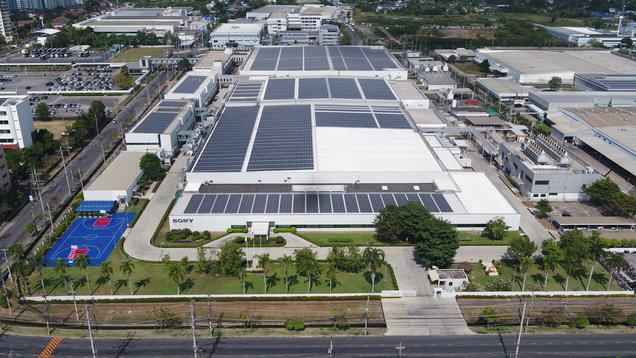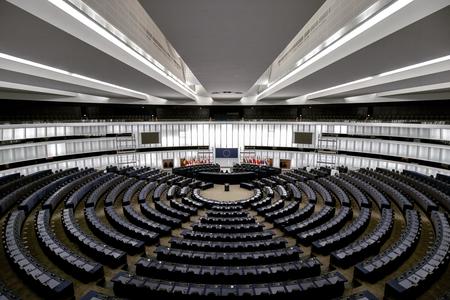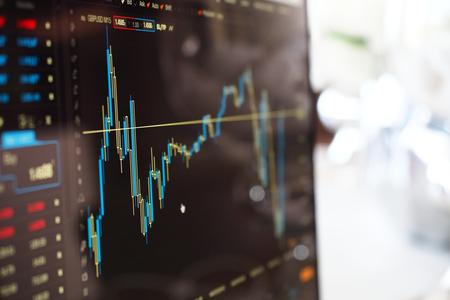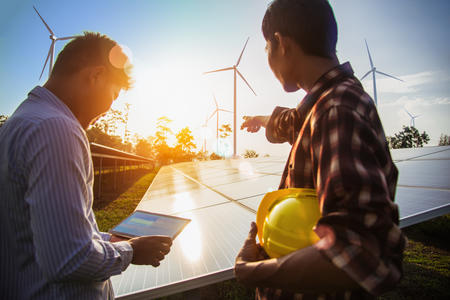Corporations play a fundamental role in ensuring the world meets its net zero target by 2050. With over 370 global businesses signed up to RE100, many are already sourcing 100% of their electricity from renewables, making a significant contribution to the global drive for accessible, clean, affordable energy.
We spoke with Keiko Shiga, General Manager, Environment Section, Sustainability Department at Sony Group Corporation on what it means to be part of RE100 and strive for net zero.
What is Sony’s electricity use, globally?
2,344 GWh in fiscal year 2020.
What is Sony’s current renewable electricity use, globally?
155 GWh in fiscal year 2020.
What is Sony’s RE100 story?
Climate change is a global issue, and it affects everybody. As a global company, it’s important to us that the Sony Group (Sony) should be proactive on its own impact. We joined RE100 in 2018 with this firmly in our minds.
When we joined, we set ourselves a 100% renewable electricity target date of 2040 but felt that this was not ambitious enough or in line with our goals and ethos as a company. We subsequently brought this forward to 2030 to be in line with our Road to Zero environmental plan.
Being part of RE100 is really valuable to us as a company. It helps us to gather global insights on renewable electricity in different markets which can support our offices and factories. This helps us to push our activities forward with confidence. As a member, our voice is added to all the others that are sending a stronger signal to the world that we need more affordable, ample and stable renewable electricity.
What measures has Sony undertaken to reach its RE100 goal?
Before joining the initiative, our European sites were already operating on 100% renewable electricity, so we have expanded this requirement out to our global operations including North America and China as well. We promote the installation of solar panels wherever possible, especially in our manufacturing plants, like those in Thailand and Japan, that use large amounts of electricity.
We also work with other RE100 members in Japan to strengthen our outreach to the renewable energy market, ensuring a stable supply of renewable electricity is provided, or will be in the near future. This helps to create a demand signal for policy makers to show them the market for renewable electricity is there in Japan.
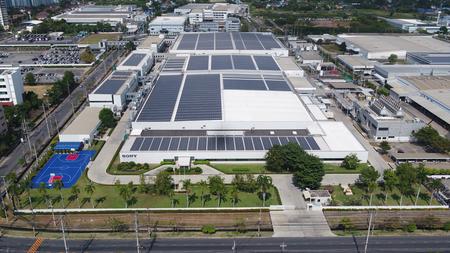
Sony is a member of RE100’s Advisory Committee. What does that mean for you as a company?
We are very honoured to help shape the direction of RE100 and bring our unique perspective towards the campaign. With our global HQ in Japan, we can bring our insights from the Asian markets to the team and provide a diversity of opinions that ensures the campaign is accessible for all companies. The barriers that we face in sourcing renewable electricity are the same for many other corporations so working out how we can make it easier is a really exciting challenge.
You mentioned your Road to Zero plan earlier, what is that?
Sony has a long history of environmental activities, dating back to the 1970’s. In 2010, we established our Road to Zero plan which aimed to achieve a zero environmental footprint by 2050. Our Road to Zero plan encompasses our Scope 1, 2 and 3 emissions and RE100 forms an integral part of the plan to achieve net zero.
What are your biggest challenges in reaching your renewable electricity targets?
The sourcing of renewable electricity is probably our biggest issue at the moment. Our headquarters are in Japan and the Asian markets in general have a lower level of accessible renewable electricity compared with Europe and North America. We have our device manufacturing facility in Japan, and this is a huge consumer of electricity so having access to renewables to support this would be a huge boost to our net zero goals.
Sony is one of over 70 members in Japan so by adding our voice, and others like it, we are helping to amplify that call for renewables by becoming louder and bigger. It can be harder to deliver the systems change we need when it’s just one or two businesses calling for greater access to renewables, but over 70 businesses in Japan alone is really something. That’s another one of the benefits of RE100. These businesses usually have the same challenges as yours so this collective voice calling for action can really help to move renewables forward in a country.
